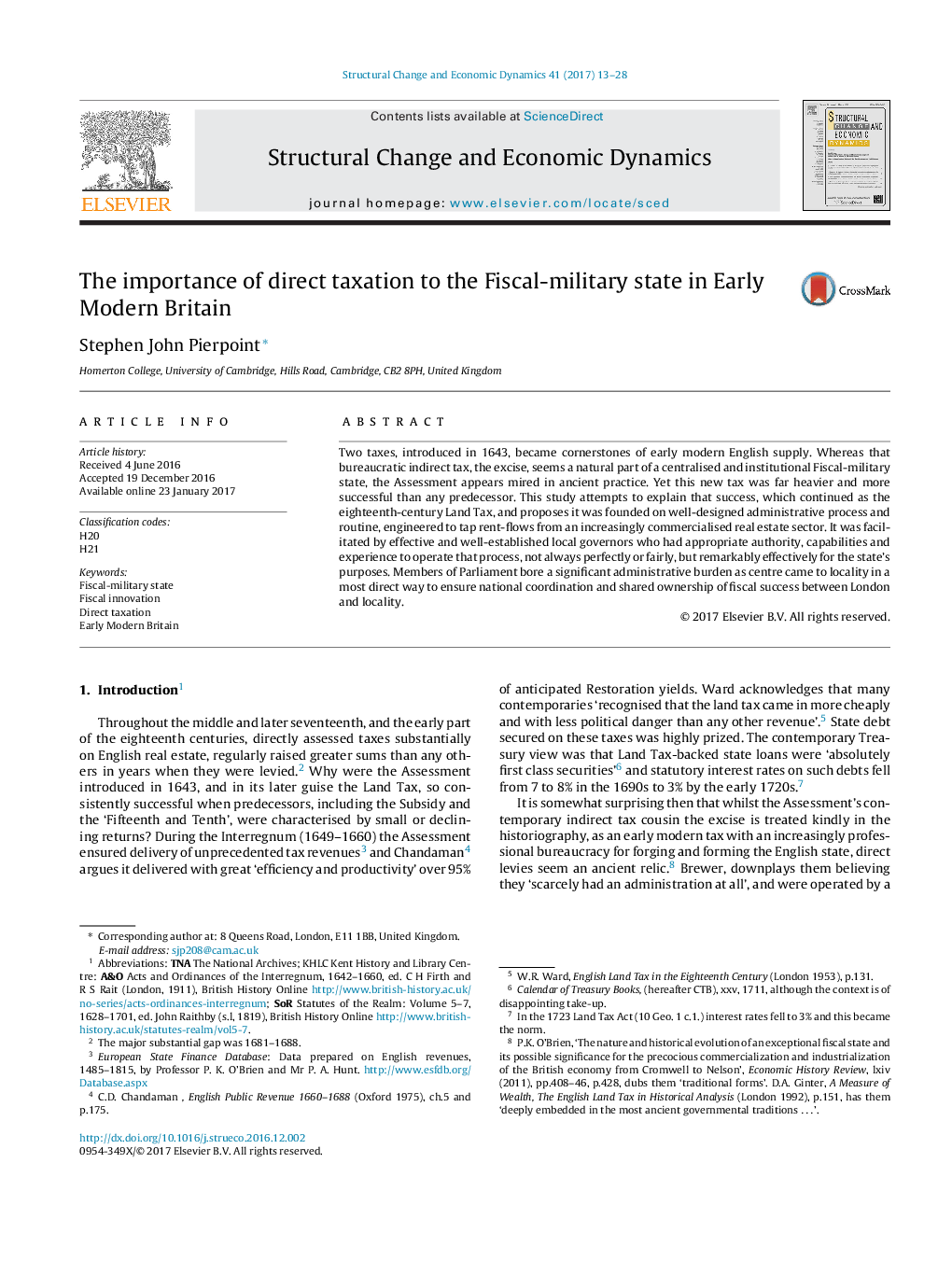| کد مقاله | کد نشریه | سال انتشار | مقاله انگلیسی | نسخه تمام متن |
|---|---|---|---|---|
| 5104504 | 1481020 | 2017 | 16 صفحه PDF | دانلود رایگان |
- Innovative forms of direct taxation underpinned the English Fiscal-military state.
- Tax was not institutionalised but administered by creative local governors participating in and benefiting from the English state.
- A Kent case study (1643-1733) shows early 1640s and continuing success of a new direct tax form - the Assessment.
- Success was aided by coordinated administration and a focus on value flows from real estate.
Two taxes, introduced in 1643, became cornerstones of early modern English supply. Whereas that bureaucratic indirect tax, the excise, seems a natural part of a centralised and institutional Fiscal-military state, the Assessment appears mired in ancient practice. Yet this new tax was far heavier and more successful than any predecessor. This study attempts to explain that success, which continued as the eighteenth-century Land Tax, and proposes it was founded on well-designed administrative process and routine, engineered to tap rent-flows from an increasingly commercialised real estate sector. It was facilitated by effective and well-established local governors who had appropriate authority, capabilities and experience to operate that process, not always perfectly or fairly, but remarkably effectively for the state's purposes. Members of Parliament bore a significant administrative burden as centre came to locality in a most direct way to ensure national coordination and shared ownership of fiscal success between London and locality.
Journal: Structural Change and Economic Dynamics - Volume 41, June 2017, Pages 13-28
